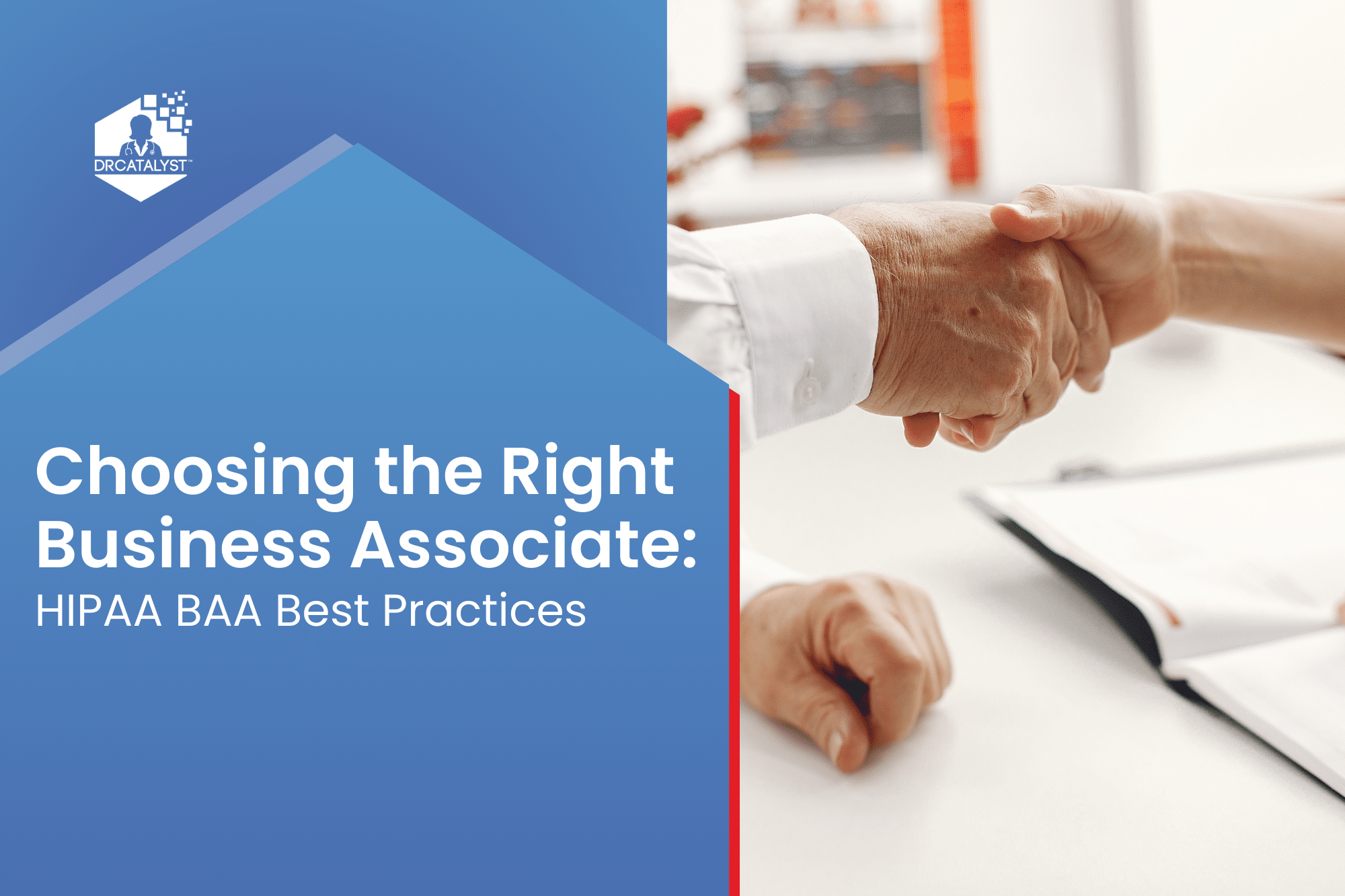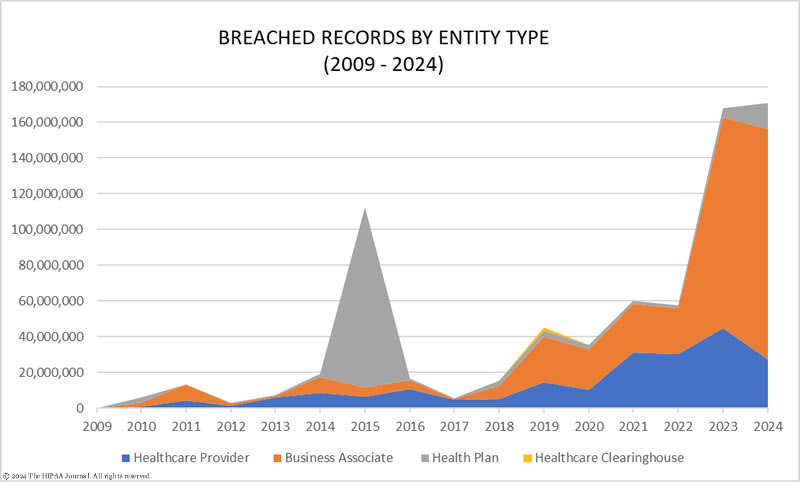
Your patients trust you with their most sensitive information. Can you say the same for those who handle data on your behalf?
With most of the industry tapping third-party vendors to manage several healthcare functions, like data storage and billing, ensuring the security of patient data has never been more critical. The typical modern hospital works with over 1,300 external vendors, as reported by the Ponemon Institute. A single misstep in choosing a business associate can result in compliance violations, data leaks, and loss of patient trust.
If you’ve already read about what a business associate agreement is, its importance, and how to avoid common execution mistakes, you’re ready for the next step: finding the right business associate. Below, you’ll learn how to identify vendors who meet your legal, operational, and ethical standards—so you can partner with one that matches your commitment to security and integrity.
Partner with a Certified HIPAA-Compliant Business Associate
What Is a Business Associate?
A business associate in healthcare is any third-party entity that handles, processes, or accesses protected health information (PHI) on behalf of a covered entity. These entities must comply with HIPAA regulations to ensure patient data security.
Examples of business associates include:
-
- Virtual staffing providers who manage administrative healthcare tasks
- Medical billing companies that handle sensitive patient payment information
- Cloud service providers offering data storage solutions
- Consultants or IT support providers with access to healthcare systems
Under HIPAA, business associates are legally bound to safeguard PHI in the same manner as covered entities. A business associate agreement (BAA) formalizes this responsibility.
Why You Should Choose a Compliant Third-Party Vendor
Today, more healthcare providers are turning to third-party vendors to streamline operations and boost efficiency. While this brings various benefits, it also introduces challenges in safeguarding sensitive patient data. There are risks, and non-compliance can result in costly breaches, hefty fines, and irreparable damage to reputation.
To mitigate these risks, choosing a reliable and compliant business associate is absolutely critical. You need partners who understand the unique requirements of handling protected health information and are fully committed to meeting HIPAA standards.
According to the HIPAA Journal, data breaches involving third-party vendors have exposed millions of healthcare records in recent years. In 2023 alone, over 93 million healthcare records were compromised due to security lapses by business associates—outpacing the 34.9 million records impacted by breaches involving healthcare providers directly.
These statistics are a stark reminder that while third-party vendors can be valuable assets, they represent a major vulnerability if not properly vetted.

The HIPAA Journal
Best Practices for Choosing the Right HIPAA Business Associate

Healthcare organizations must conduct thorough due diligence on prospective vendors to verify their security practices, ensuring all partners adhere to the HIPAA Security Rule. Here are the steps you need to do:
1. Assess Their HIPAA Knowledge and Experience
Start by evaluating whether your prospective business associate has the expertise to handle sensitive healthcare data. HIPAA compliance is complex, and only some organizations meet its stringent standards. To ensure your associate is qualified, follow these steps:
-
- Request certifications like Certified HIPAA Professional (CHP), Certified HIPAA Security Specialist (CHSS), or partnerships that demonstrate expertise (e.g., HITRUST certification).
- Inquire about their experience working with other healthcare organizations. A vendor who has worked extensively with PHI likely understands the healthcare industry’s specific risks and compliance challenges.
- Confirm that the vendor provides regular HIPAA training to their employees.
- Review their internal policies and procedures related to HIPAA compliance. Well-documented policies are good indicators that they understand compliance obligations and are prepared to meet them.
2. Evaluate Their Security Practices
Even the most HIPAA-aware organization needs robust technical safeguards to protect PHI. You will want to look into their security measures to be sure. Don’t just take their word for it; ask for specifics, such as:
-
- Technical Safeguards: Verify the use of encryption for PHI both in transit and at rest. Strong encryption standards deter data interception.
- Access Controls: Are access control measures like role-based access or multi-factor authentication in place? The fewer people with access to PHI, the lower the risk of breaches.
- Physical Security Measures: Double-check if the vendor has secure facilities, restricted physical access, surveillance, and secure data storage locations.
- Track Record and Incident History: Ask if the vendor has a history of handling PHI without breaches or security lapses. Request information about past incidents, how they resolved them, and what changes they implemented to prevent recurrence.
- Risk Analysis and Management: Verify if the vendors conduct regular risk analyses to identify potential vulnerabilities and implement controls to mitigate those risks.
3. Ensure Subcontractor Compliance
A business associate often works with subcontractors who may also have access to PHI.
Compliance obligations should flow down to every subcontractor. It is not enough that your direct vendor is compliant—every subcontractor they work with must adhere to the same standards.
Ensure the vendor has a HIPAA business associate agreement with all their subcontractors who may handle PHI. Request evidence of these agreements and inquire how the primary business associate ensures compliance across all subcontractors.
The vendor should have mechanisms for monitoring the activities of their subcontractors. They must conduct audits, track subcontractor compliance status, and ensure subcontractors are up-to-date with HIPAA regulations.
4. Review Their Breach Notification Policies
Despite the best efforts, breaches can still happen. When they do, timely and transparent notification is critical. Ensure the vendor has a well-defined process for notifying covered entities of a data breach.
Ask for details of their breach response plan. The plan should outline their steps in case of a breach, including containment, investigation, and remediation. Vendors with a clear strategy are more likely to handle incidents effectively.
Request information about any past breaches and how the vendor handled the situation. Such data will give you insight into their approach to transparency and whether or not they take incidents seriously.
Read: Avoiding Common Mistakes in HIPAA Business Associate Agreements
Red Flags to Avoid When Selecting a Business Associate
To protect your organization and maintain trust with patients, be on the lookout for these red flags when evaluating potential business associates:
-
- Lack of transparency regarding compliance practices
- Outdated security protocols
- Insufficient HIPAA training programs for staff
- Reluctance to share audits or compliance documentation
- No defined subcontractor management policy or failure to execute a HIPAA business associate agreement
- Poor incident response and breach notification procedures
- Frequent changing of teams, employees, or partners, which could signal internal issues
Frequently Asked Questions
1. What HIPAA rules are business associates required to follow?
Business associates must follow the following HIPAA rules to ensure that health information remains secure:
-
- HIPAA Privacy Rule: Third-party vendors must protect the privacy of PHI and are only allowed to use or disclose PHI as permitted by their contract or as required by law. They must also assist covered entities in responding to patient requests related to their health information.
- HIPAA Security Rule: Business associates must implement physical, administrative, and technical safeguards to protect electronic PHI (ePHI). They must conduct risk assessments, control access to data, and ensure data integrity and confidentiality.
- HIPAA Breach Notification Rule: Vendors are required to notify covered entities of any breaches involving unsecured PHI. Depending on the circumstances, the notification must be made within a specified timeframe, typically no later than 60 days after discovering the breach.
2. How is a business associate liable under HIPAA?
One of the first steps to ensuring HIPAA compliance is having a business associate agreement between a healthcare provider and its third-party vendors. Since the passage of the HITECH Act, HIPAA BAAs have taken on even greater importance, as they hold business associates directly accountable for meeting HIPAA requirements. If a vendor fails to follow the terms of the BAA, it could lead to a HIPAA violation.
Here are a few examples of how business associates can face accountability:
-
- Not meeting HIPAA Security Rule requirements, such as implementing critical security safeguards
- Lack of BAAs with subcontractors handling PHI
- Improper disposal of PHI
- Inadequate efforts to restrict the use or sharing of PHI to only what is needed
- Neglecting to oversee and update PHI access records
- Unauthorized use or disclosure of PHI that violates BAA guidelines
- Retaliating against someone for filing a HIPAA complaint or participating in an investigation
- Not providing the necessary accounting of disclosures when requested
- Refusal to provide records or cooperate with HHS during HIPAA compliance reviews and investigations
- Failure to promptly notify affected parties or the covered entity of any PHI breaches
Partner with DrCatalyst
Selecting a business associate for your healthcare organization is a decision that impacts compliance, security, and integrity.
A great partner won’t just meet the bare minimum; they’ll be an extension of your team, helping you stay ahead of risks and build trust with every patient interaction. Don’t rush the process. Ask the tough questions, demand transparency, and look for a business associate who shares your commitment to doing things the right way.
At DrCatalyst, we pride ourselves on providing fully HIPAA-compliant virtual staffing solutions that meet the industry’s highest standards. As recipients of the HIPAA Seal of Compliance from the Compliancy Group, we ensure your practice can operate securely and efficiently.
Let us help safeguard your patients’ data while optimizing your practice’s operations. Contact us today to learn how we can support your practice with secure and efficient solutions.
Hire Virtual Staffing Professionals with Proven HIPAA Compliance



